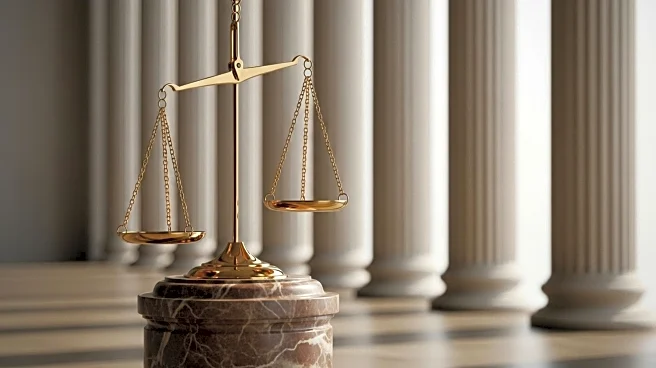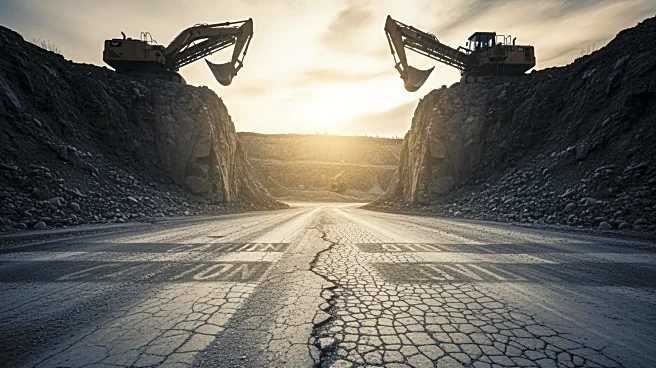What's Happening?
The process of nominating justices to the Supreme Court is a significant aspect of U.S. governance, involving the President's nomination and the Senate's confirmation. Historically, 165 nominations have been submitted, with 128 confirmations. The American Bar Association evaluates nominees, providing rankings of qualified, well-qualified, or not qualified. Notably, Franklin D. Roosevelt appointed nine justices, the most by any president, while Jimmy Carter did not nominate any during his term. Recent nominations include President Trump nominating Neil Gorsuch in 2017 and Brett Kavanaugh in 2018, both confirmed by narrow Senate margins. President Biden nominated Ketanji Brown Jackson in 2022, marking her as the first Black woman on the Supreme Court.
Why It's Important?
Supreme Court nominations are crucial as they shape the judicial landscape and influence major legal decisions affecting U.S. society. The confirmation process reflects political dynamics, with nominees often facing intense scrutiny and debate. The court's composition can impact rulings on key issues such as civil rights, healthcare, and environmental policies. The appointment of diverse justices, like Ketanji Brown Jackson, signifies progress towards representation and inclusivity in the judiciary. These nominations also highlight the balance of power between the executive and legislative branches, underscoring the importance of bipartisan cooperation.
What's Next?
Future nominations will continue to be pivotal, with potential retirements or vacancies offering opportunities for new appointments. The political climate will influence the selection and confirmation process, with possible shifts in the court's ideological balance. Stakeholders, including political leaders and advocacy groups, will likely engage in discussions and campaigns to support or oppose nominees. The ongoing evaluation of nominees by the American Bar Association and Senate Judiciary Committee will remain integral to the process, ensuring qualified candidates are considered for the nation's highest court.
Beyond the Headlines
The nomination process raises ethical and legal questions about the influence of political ideologies on judicial decisions. It also prompts discussions on the lifetime tenure of justices and its implications for judicial independence. The role of public opinion and media coverage in shaping perceptions of nominees is another dimension, affecting the transparency and accountability of the process. Long-term shifts in the court's composition could lead to changes in legal precedents, impacting societal norms and governance.








